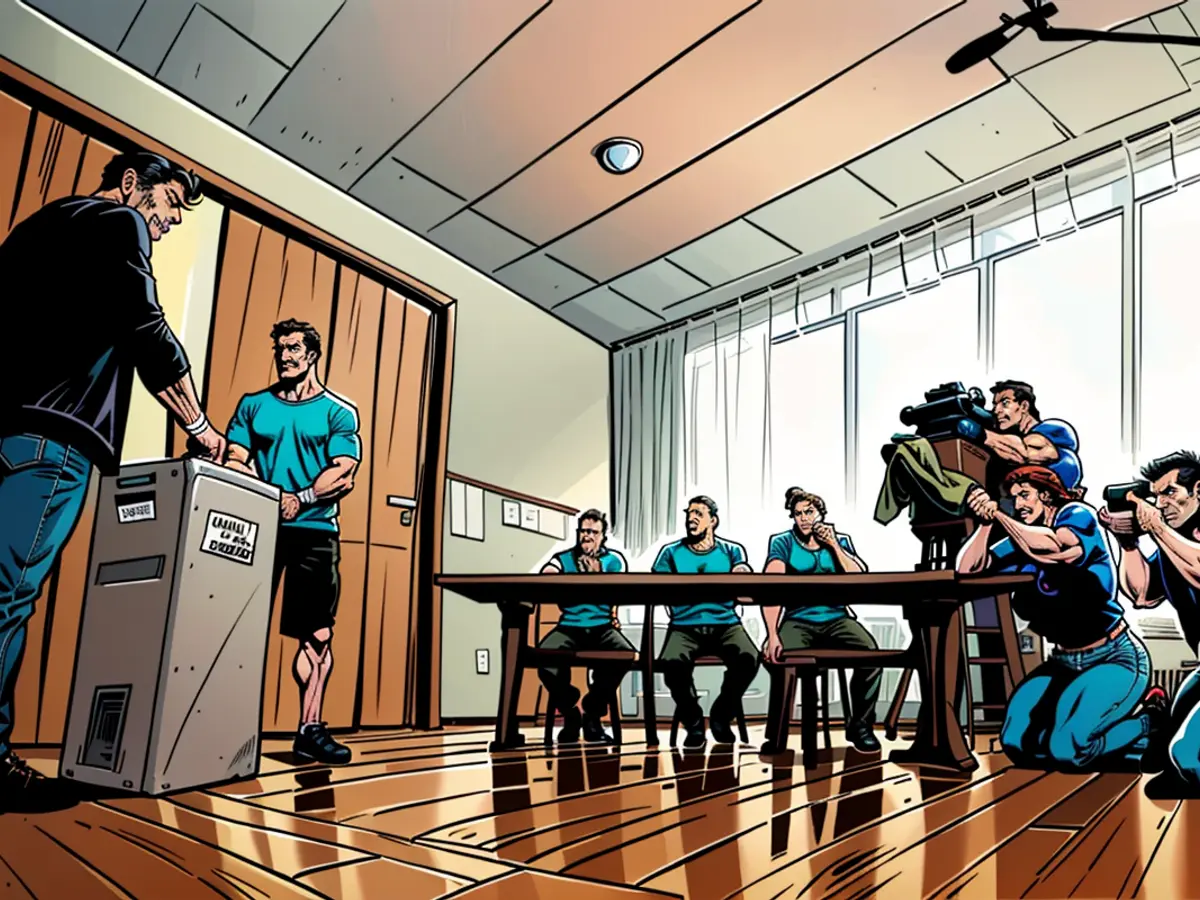Thuringia significantly contributes to the notable participation in the voting process for the regional parliament elections.
Approximately 1.66 million voters are encouraged to participate in the voting process. In recent polls, the Alternative for Germany (AfD) has been leading significantly over the Christian Democratic Union (CDU), followed closely by the Left Party led by Minister President Bodo Ramelow, and the Sahra Wagenknecht Alliance (BSW). The Social Democratic Party (SPD) is predicted to have a historically poor result, while the Greens face the risk of not making it into the state parliament, and the Free Democratic Party (FDP) has minimal chances. Polling stations are scheduled to close at 6:00 PM.
The AfD's front runner, Björn Höcke, cast his vote in Bornhagen around noon. Representing the party's far-right wing, Höcke left the polling station without speaking to the press. Despite his party's recent boost, he has been dealing with setbacks. At the last minute, he withdrew from a TV debate due to "health concerns."
Due to consistently losing to the CDU candidate in his home constituency of Eichsfeld, Höcke chose to run in Greiz. However, the CDU could also clinch the victory in Greiz. Ironically, his party colleagues' success might work against him. According to polls, the AfD has a high chance of securing direct mandates in numerous constituencies, which could potentially render even first place on the state list inadequate for gaining a seat in the state parliament.
The media is unlikely to cover the AfD's election celebration. Following a court decision against the exclusion of several media outlets from the event, the state party, considered to be a securely right-wing extremist group by the domestic intelligence service, excluded all journalists due to "organizational issues." A party spokesperson cited insufficient space at the venue to accommodate all accredited journalists.
The CDU's top candidate, Mario Voigt, cast his vote in Jena. He expressed his hope that "many residents of Thuringia go to the polls and exercise their right to shape the future of our state." He also hoped for "stable majorities" to enable progress in the state once again.
Minister President Ramelow, whose minority government has little to no chance of re-election according to polls, distanced himself clearly from the AfD after casting his vote in Erfurt. He declared that he would fight for "all those who strive for a liberal and democratic decision." However, he emphasized that the strength of the AfD was "not an isolated issue in Thuringia."
Despite the potential for high voter turnout, concerns over the AfD's chances of securing direct mandates in numerous constituencies might impact their ability to gain a seat in the state parliament, even with a strong performance in the state list. The election results could significantly impact the future political landscape of Thuringia, with potential implications for Party leaders such as Björn Höcke.







